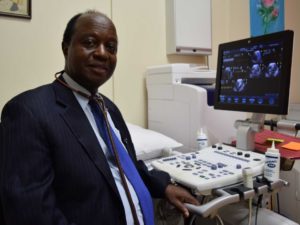Government has today afternoon dropped Australian-based cardiologist Dr. Aggrey Kiyingi from the list of suspected terrorists charged with killing Muslim clerics in the country last year . However, the other 31 suspects with whom Dr. Kiyingi was being charged remain on the list and court proceedings against them will continue.
At the International Crimes Division of the High Court today afternoon, Principal State Attorney Richard Kaamuli, acting on behalf of the Director of public prosecutions, asked the presiding Justice to drop all charges against dr. Kiyingi. And shortly after the judge accordingly dropped all charges against the Australian-based cardiologist.
The DPP last year named Dr. Kiyingi on alist of 32 people charged with murder, terrorism and crimes against humanity, and Dr. Kiyingi being out of the country Ugandan authorities had said they would work with their Australian counterparts to bring in place a possible extradition of the cardiologist.
The dropping of charges against the doctor might be interpreted to mean he is now a free man and can return to the country. However, it is not certain that the doctor is now free, for Mr. Kaamuli’s statement in court today didn’t imply they lack evidence to pin him. Rather, mr Kaamuli’s statement implied charges against the doctor were being dropped because he can’t be produced in court –yet in the preceding session the judge asked the prosecution to produce the doctor and failure to do so might have dragged the prosecution of even the other 31 suspects who were being co-charged with dr. Kiyingi.
The Principal State Attorney today told court that proceedings against the other 31 can go on because they have enough evidence to pin them. The 31 were in court this afternoon, and they included Sheikh Yunus Kamoga, the leader of the Tabliq sect who with 30 more is believed to have directed systematic attacks against Shia and Tabliq Muslims, leaving many dead including Sheikhs Mustafa Bahiga, Abdulkadir Muwaya and Hassan Kirya.
